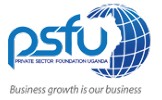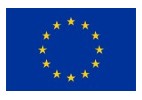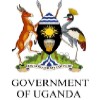The first-ever sub-regional conference on Business and Human Rights in East Africa has been launched with the agenda to highlight human rights risk related to land-based investments and the opportunities for private sector and government to strengthen policy and effective implementation. The hybrid conference that took place on 14 and 15 June 2023 in Kampala and online, attracted participants from member states of the East African Community (EAC), including Burundi, the Democratic Republic of Congo, Kenya, Rwanda, Tanzania, South Sudan and Uganda and Ethiopia.
The East African region is one of the world’s richest natural resource regions and attracts significant attention in the extractive and energy sectors. Many countries in the region possess vast areas of fertile land, which are essential for sustenance of communities and agricultural industries. Land Based Investments (LBIs) are implemented with a view to contribute to GDP growth and agri-food value chains, which are essential to tackle food security challenges persisting in the region. While LBIs contribute to economic development and provide for multiple employment opportunities and infrastructure development in the region, they have also been associated with risks to workers-, land-, and environmental rights.
The business and human rights agenda has gained particular traction in the East African region, where Kenya and Uganda as the first countries on the African continent have adopted a national action plan on business and human rights (NAP), and other countries have committed to embark on similar journeys. Whereas NAPs constitute a unique opportunity to guide activities to enhance the implementation of existing national human rights law, states and businesses must also prepare for the increase in binding regulation of global supply chains. The adoption of the European Union’s Corporate Sustainability Due Diligence Directive (CS3D) in 2022 will soon increase the demand from private corporations to account for human rights and climate impact throughout their value chains. During the conference, participants got the opportunity to discuss the regional implications of CS3D directive and how stakeholders can start to prepare in collaboration with civil society and national human rights institutions. Organised by DanChurchAid, Business & Human Rights Resource Centre, Network of African National Human Rights Institutions, The Danish Institute for Human Rights and the Government of Uganda, the conference was attended by more than 100 participants comprised of stakeholders representing member states, private sector, international organisations, national human rights institutions, civil society and grassroot entities.




